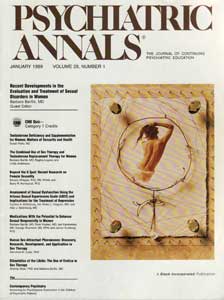(Psychiatric Annals Excerpt Pge.57)
With colleagues, I have conducted two double-blind, placebo-controlled experiments of sexual responses to pheromones that have been reported to the scientific community. Our first study of women used the data collected in 1986 in the Cutler and Preti experiments... these data were analyzed according to sexual behavior patterns. The first study of men, in 1994, added a man's proprietary pheromone formula to each man's usual aftershave fragrances and tested for changes in sexual behavior. Both studies found that human pheromones, but not placebo, produced significant increases over baseline in sexual behavior involving a partner. ***
A proprietary, patent-pending cosmetic fragrance additive for women (Athena Pheromone 1013tm) was brought to market in 1993 as a putative sex attractant with positive results among healthy women. Positive results were also reported in one medical sample of post-hysterectomy women taking hormone replacement therapy (HRT) and complaining of loss of sexual attractiveness; the study was terminated by the medical group when its leader concluded that 70% of the women using the pheromone cosmetic were helped.
Published in 1998, our 1994 double-blind, placebo-controlled experiment of 38 heterosexual men tested a proprietary, patent-pending formula that contained a laboratory-synthesized version of human pheromones (marketed as Athena Pheromone 10Xtm). The study showed that compared with the placebo group, the men using the pheromone for 6 weeks recorded a statistically significant increase over their own 2-week baseline behavior.
Thus, in this prospective, double-blind, placebo-controlled study, human pheromones caused a statistically significant and distinct increase in those romantic behaviors in which a woman plays a major role... These findings suggest an increased sexual attractiveness of the men without an influence on the men's sexual motivation, further supporting the hypothesis of the pheromonal nature of apocrine secretions in humans. Practitioners should use skepticism and discrimination in recommending pheromone products to their sexual therapy patients. Any products claiming that they are an "aphrodisiac" should be avoided because this is a drug claim that is regarded by the Food and Drug Administration as illegal and no such studies have been reported. Many commercial products claiming they contain pheromone ingredients may actually contain the previously discussed boar pheromone and may act as a repellent.
To date, the only product tested under double-blind, placebo-controlled conditions with a study published in a peer reviewed journal is Athena Institute's synthesized human male pheromone cosmetic fragrance additive. In this study, discussed above, 74% of the heterosexual men using the pheromone for 6 weeks recorded increased romantic attention from women compared with their own 2-week baseline. Not an aphrodisiac, these products are cosmetics that apparently work to increase romantic attention from others.
<--Prev Next-->

